🌿 What is Arasa Ilai Powder?
Arasa Ilai Powder is derived from the leaves of the Arasa Maram (Ficus religiosa), known in English as the Sacred Fig or Peepal Tree. Highly venerated in Indian tradition and Ayurveda, Arasa Ilai (Peepal leaves) are esteemed for their holistic healing properties—particularly for enhancing respiratory health, regulating blood sugar, relieving skin disorders, and promoting mental clarity. The Arasa tree is considered sacred in Hinduism and Buddhism, symbolizing knowledge, enlightenment, and life-giving vitality. Its leaves are often used in spiritual rituals and folk medicine across Tamil Nadu and the Indian subcontinent.
🌱 Description of the Arasa Tree
- Botanical Name: Ficus religiosa
- Family: Moraceae
- Plant Type: Deciduous tree with broad canopy
- Leaves: Heart-shaped, long-tipped, glossy green leaves with prominent venation
- Stem/Bark: Greyish, rough bark with medicinal latex
- Flowers: Minute, hidden within the fig receptacle
- Fruits: Small figs, turning purple when ripe
- Odor: Leaves emit a fresh, earthy aroma when crushed
🌍 Habitat of Arasa Ilai
The Arasa tree thrives in warm tropical climates, growing commonly along roadsides, temples, riverbanks, and village centers throughout India and Southeast Asia. It prefers deep, well-drained loamy soils and full sunlight. It is often planted for shade and sacred significance in temple premises and public spaces.
🌟 Medicinal Properties of Arasa Ilai Powder
Arasa Ilai is a multi-action herb, rich in Ayurvedic and Siddha tradition:
• Respiratory Tonic: Alleviates asthma, bronchitis, and breathing difficulties
• Antidiabetic: Supports insulin function and helps reduce blood sugar levels
• Wound Healing: Promotes rapid tissue repair and reduces inflammation
• Antioxidant: Combats free radicals and oxidative stress
• Mental Clarity: Calms the nervous system and improves concentration
• Digestive Support: Relieves acidity, constipation, and gastric irritation
• Skin Cleanser: Useful in treating acne, blemishes, and skin rashes
🧪 Active Compounds in Arasa Ilai
Arasa Ilai contains a potent blend of plant-based bioactive components:
• Tannins: Astringent, wound-healing, and skin-tightening
• Flavonoids (e.g., Kaempferol): Anti-inflammatory and anti-aging
• Beta-sitosterol: Cholesterol-lowering and antidiabetic
• Polyphenols: Powerful antioxidants that boost immunity
• Glycosides: Heart and liver supportive properties
• Latex Alkaloids: Natural purgative and anti-parasitic
🍵 Usage and Dosage
⚠️ Always consult with a qualified practitioner for internal use, especially for chronic conditions.
For Skin Irritation or Acne (External Use):
• Mix 1 tsp Arasa Ilai Powder with rose water or honey
• Apply as a face pack; leave for 15–20 minutes
• Rinse with lukewarm water
• Frequency: 2–3 times a week
For Diabetes Support (Internal Use):
• Mix ¼ tsp Arasa Ilai Powder with warm water
• Consume once daily on an empty stomach
• Duration: 30–45 days under practitioner guidance
For Respiratory Health (Steam or Infusion):
• Boil 1 tbsp Arasa Ilai Powder in 2 cups of water
• Inhale the steam or drink as herbal tea (after filtering)
• Use during cold, wheezing, or sinus conditions
⚠️ Precautions
• Pregnancy & Lactation: Avoid internal use without expert advice
• Latex Allergy: May cause reactions in sensitive individuals
• Long-Term Use: Monitor blood sugar levels if using for diabetes
• Children: Use mild external preparations only under supervision
• Tree Conservation: Do not overharvest from a single tree
📦 Storage
• Store in an airtight, dry container—preferably glass or metal
• Keep away from moisture, direct sunlight, and strong odors
• Use a clean, dry spoon to scoop powder
• Shelf life: 9–12 months with proper storage
🌿 Organic and Ethical Considerations
• Respect Sacred Trees: Harvest mature leaves from healthy trees without damaging the trunk or roots
• Traditional Wisdom: Prepare in line with classical Siddha or Ayurveda methods
• Eco-Conscious Packaging: Use biodegradable or recyclable containers
• Support Local Healers: Source from ethical herbalists or farmer co-operatives
🪔 Spiritual Note
In Tamil culture, the Arasa tree is worshipped by devotees who tie sacred threads around it and perform circumambulations (pradakshina) for blessings related to health, progeny, and spiritual growth. Arasa Ilai is sometimes used in sacred baths (snanam) or ritualistic cleansing.
Tamil (தமிழ்): அரசா இலை (Arasa Ilai)
Sanskrit: अश्वत्थ पत्रम् (Ashvattha Patram)
Hindi: पीपल का पत्ता (Peepal ka Patta)
Malayalam: അരിപ്പ മലര് (Arippam Ilay)
Kannada: ಅಶ್ವತ್ಥ ಎಲೆ (Ashvattha Ele)
Telugu: రావి ఆకులు (Raavi Aakulu)
Marathi: पिंपळाचे पान (Pimpalache Paan)
Gujarati: પિપળા ના પાંદડા (Pipla na Paandda)
Bengali: অশ্বত্থ পাতা (Ashwattha Pata)
Punjabi: ਪੀਪਲ ਦੇ ਪੱਤੇ (Peepal de Patte)
Urdu: پیپل کا پتہ (Peepal ka Patta)
English: Sacred Fig Leaf / Peepal Leaf
Botanical Name (Latin): Ficus religiosa
🧾 Nutritional Facts, Info & Dosage – Arasa Ilai Powder
📊 Nutritional Profile (per 100g of dried leaf powder)
(Values are approximate and may vary based on soil, climate, and processing)
- Calories: 230–250 kcal
- Dietary Fiber: 30–35 g
- Protein: 8–10 g
- Fat: 1–2 g
- Calcium: 400–500 mg
- Iron: 10–15 mg
- Magnesium: 100–150 mg
- Potassium: 300–400 mg
- Phosphorus: 80–120 mg
- Flavonoids & Polyphenols: Present in trace bioactive amounts
- Antioxidants (ORAC Value): High – beneficial for cellular health
📘 General Information
- Type: Leaf powder of the sacred Arasa tree (Ficus religiosa)
- Taste (Rasa): Kashaya (astringent), Tikta (bitter)
- Virya (Potency): Shita (cooling)
- Vipaka (Post-digestive effect): Katu (pungent)
- Dosha Action: Balances Pitta and Kapha; may mildly increase Vata if overused
- Best Time to Use: Early morning on an empty stomach (internal); evenings for skin or respiratory use
- Shelf Life: 9 to 12 months in airtight, dry conditions
⚖️ Recommended Dosage
(Always consult a qualified Siddha or Ayurvedic practitioner before internal use)
Internal Use (Adults):
- Daily Dose: ¼ to ½ teaspoon (approx. 500–1000 mg) once a day
- With: Warm water, honey, or infused in herbal decoction
- Cycle: Use for 30–45 days with 10-day breaks between long-term cycles
External Use (Any Age):
- Face/skin pack: Mix with rose water, apply 2–3 times a week
- Paste for wounds or eczema: Mix with turmeric or neem powder and clean water
- Steam inhalation: 1 tbsp boiled in 2 cups of water for 10 minutes
✅ How To Consume (Internal Use)
⚠️ Internal use should always be done under the supervision of a qualified Siddha or Ayurvedic practitioner.
1. For Blood Sugar Balance (Diabetes Support):
• Mix ¼ tsp of Arasa Ilai Powder in warm water.
• Consume once daily on an empty stomach in the morning.
• Continue for up to 45 days, then pause for 10 days.
2. For Gastric or Acidity Relief:
• Mix with buttermilk or honey and take after meals.
• Use twice a day for short-term relief.
3. For General Detox or Rejuvenation:
• Combine with Triphala or Neem powder.
• Take ¼ tsp at night before bed with lukewarm water.
💆 How To Use (External Applications)
1. For Skin Health (Acne, Rashes, Pigmentation):
• Mix 1 tsp Arasa Ilai Powder with rose water or aloe vera gel.
• Apply as a face pack; leave for 15–20 minutes and rinse.
• Use 2–3 times per week.
2. For Wound Healing or Insect Bites:
• Make a paste with turmeric or neem powder and clean water.
• Apply directly to the affected area.
• Cover with a clean cotton cloth if needed.
3. For Respiratory Relief (Steam Inhalation or Tea):
• Boil 1 tbsp of powder in 2 cups of water.
• Inhale steam for sinus and chest congestion OR
• Strain and sip the decoction as herbal tea (optional: add tulsi or dry ginger).
🏺 How To Store
• Keep the powder in a clean, dry, airtight container—preferably glass, steel, or food-grade PET.
• Store in a cool, dry place, away from sunlight, heat, and moisture.
• Do not use wet spoons or allow moisture to enter the container.
• Label with the manufacture date and keep track of shelf life.
🕰️ Shelf Life:
• Typically lasts 9–12 months under ideal storage conditions.
• Discard if the smell changes, or if clumping or mold appears.
⚠️ Caution, Tips & Harvesting – Arasa Ilai Powder
⚠️ Caution & Safety Guidelines
• Pregnancy & Lactation:
Avoid internal use during pregnancy and breastfeeding unless prescribed by a qualified Siddha or Ayurvedic practitioner.
• Children:
Not recommended for internal consumption in children under 12 without medical supervision. External use (like paste or steam) may be used sparingly with care.
• Allergy Alert:
Individuals sensitive to latex or fig family plants (Moraceae) may experience allergic reactions. Always do a patch test before topical application.
• Diabetic Patients:
Regular monitoring of blood sugar levels is advised when using Arasa Ilai internally, as it may lower glucose.
• Not for Continuous Long-Term Use:
Prolonged use beyond 45 days should be avoided without breaks. Follow guided cycles with rest periods.
🌿 Traditional & Practical Tips
• Best Time to Take:
Early morning on an empty stomach for internal detox; evening for steam or skin application.
• Synergistic Combinations:
Combine with Neem Powder for skin problems, or Tulsi & Dry Ginger for respiratory uses. Mix with Triphala for mild laxative and detox action.
• Spiritual Significance:
Arasa leaves are considered sacred and are often used in puja, holy baths, or to purify spaces. Use mindfully with reverence if used for spiritual or ritualistic purposes.
• Avoid Aluminum Vessels:
When preparing decoctions or steam, use clay, stainless steel, or brass utensils instead of aluminum.
🌱 Harvesting Guidelines
• Ideal Season:
Best harvested during early morning hours in late spring to early monsoon (April–July), when the leaves are fresh and vibrant.
• Selection of Leaves:
Pluck mature, unblemished green leaves—avoid yellowing or insect-damaged ones.
• Harvesting Method:
Hand-pluck 3–5 mature leaves per branch from a healthy, mature tree.
Never strip the entire branch; allow natural regrowth.
• Drying:
Shade-dry the leaves in a well-ventilated area, avoiding direct sun to preserve volatile oils and color.
Once crisp, powder using a clean grinder and store immediately.
• Sustainability Tip:
Since Arasa trees are sacred and often worshipped, ensure ethical harvesting with respectful intent—preferably from non-ritual trees or under guidance.

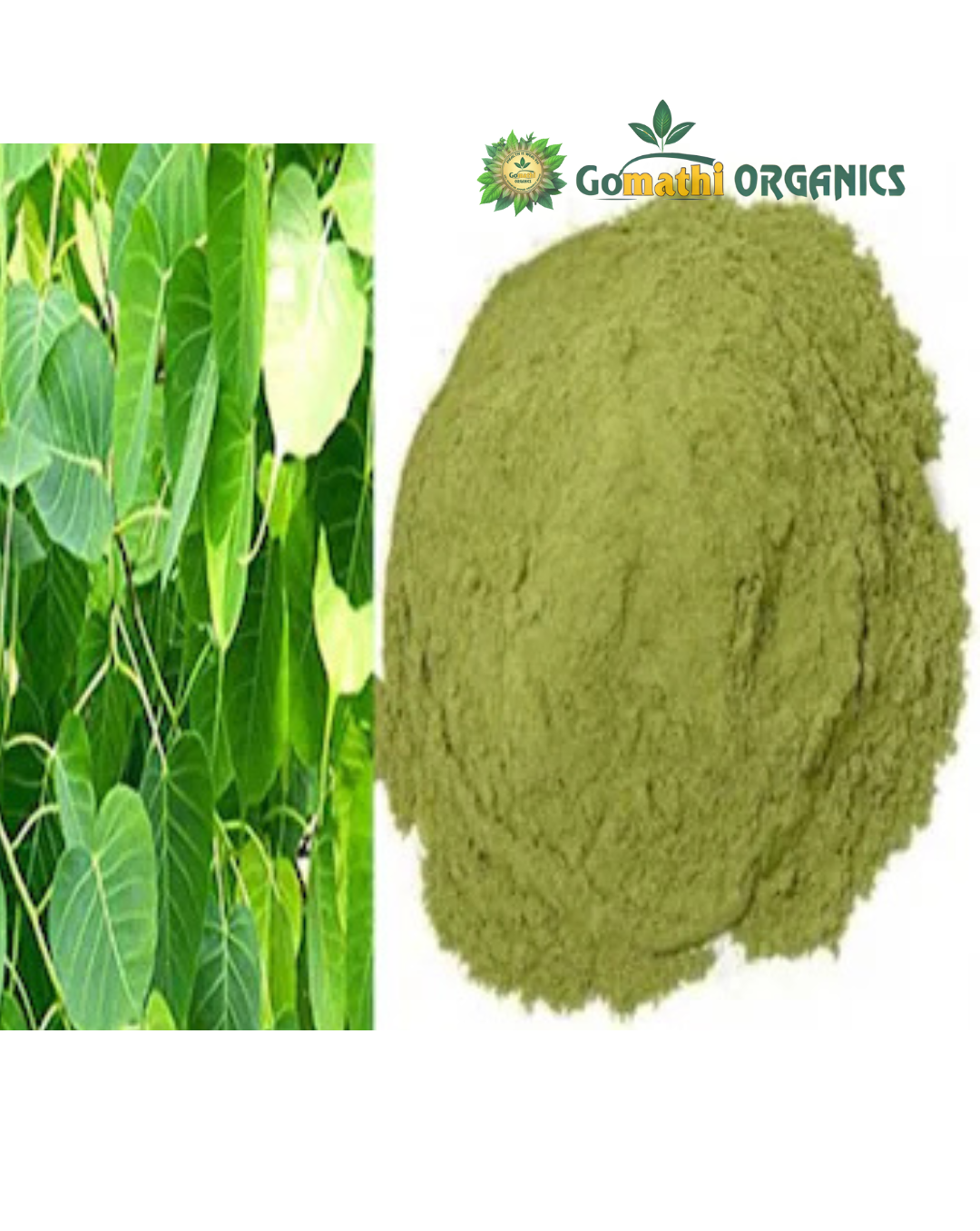
 SCIENTIFICALLY TESTED & COMPLETELY SAFE. SUITABLE FOR VEGETARIANS. NOT TESTED ON ANIMALS/NO ANIMAL INGREDIENTS. NO KNOWN SIDE EFFECTS. COMPLETELY SAFE. NON-TOXIC. FREE FROM HEAVY METALS
SCIENTIFICALLY TESTED & COMPLETELY SAFE. SUITABLE FOR VEGETARIANS. NOT TESTED ON ANIMALS/NO ANIMAL INGREDIENTS. NO KNOWN SIDE EFFECTS. COMPLETELY SAFE. NON-TOXIC. FREE FROM HEAVY METALS 

 The Food and Drug Administration has not evaluated these Statements. This product is classified as an “Herbal Food Supplement” and is not designed to diagnose, treat, cure, or prevent any disease. If you have any underlying health conditions, please consult a healthcare professional before using this product
The Food and Drug Administration has not evaluated these Statements. This product is classified as an “Herbal Food Supplement” and is not designed to diagnose, treat, cure, or prevent any disease. If you have any underlying health conditions, please consult a healthcare professional before using this product 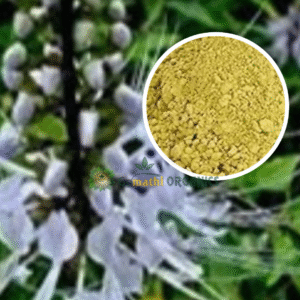
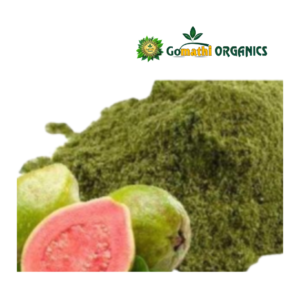
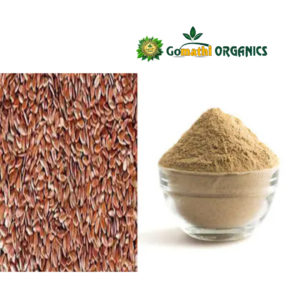
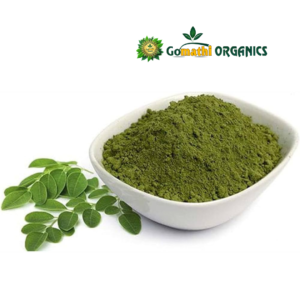
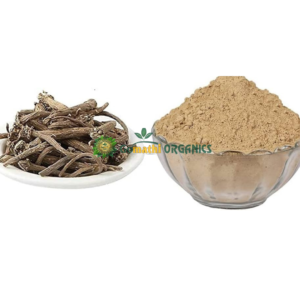
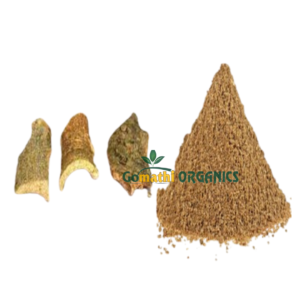

Reviews
There are no reviews yet.